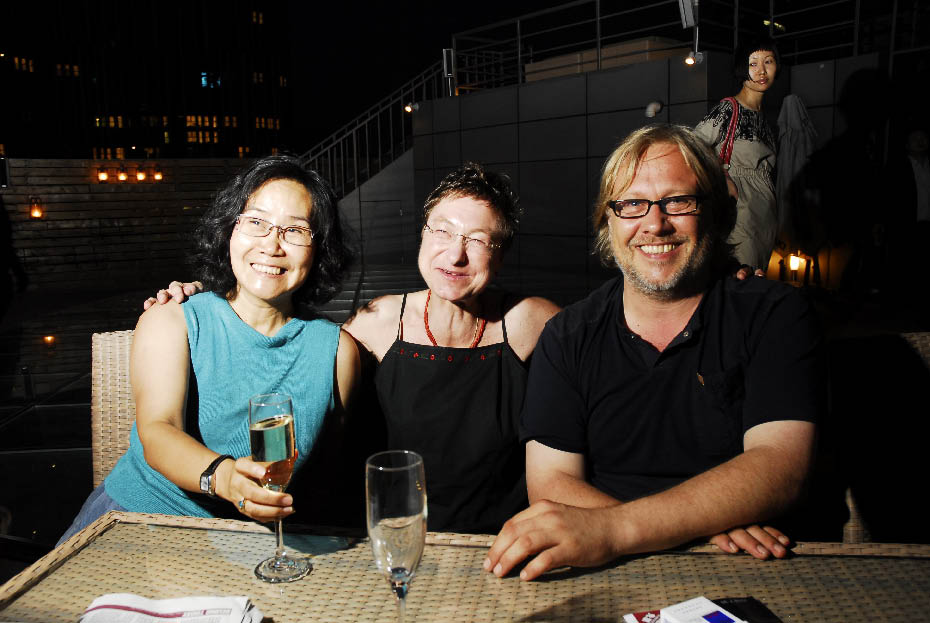|
Next year the festival will go back to using the smaller, more intimate venues Sallade confesses he prefers, but this year they have the government on their side so they want to demonstrate they can scale up. Christine Pernin was the only other person to succeed on this scale, Sallade notes, organizing the EU film fest in France. “And she had a big budget; I had nothing to work with. We’ve done this totally DIY (do it yourself) not relying on having this big commercial presence.” Volunteers put in the work that made this possible. It’s all been a very hands-on mission and the idealism shows no signs of deterioration. “We started this with the idea of expanding the minds of everyone in Beijing, not just expats. Many of these films have not been shown in China before. Some of our films show conflicting nations being brought together. Our distinguished guests are writers, producers, directors and actors from all over the world.” BIMF will do more than share the love: techniques, processes and experiences will be explored and discussed so all aspects of filmmaking can be improved.
Marcus Wellendorf of Germany is a fan of the BIMF but takes a slightly different position. “Film is not something to be shown; it is something to be done,” asserts the art director for John Rabe, the German-Chinese 2007 co-production on that hero’s role during the Nanjing Massacre. He came back in 2009, to Beijing this time, to start a production company. Wellendorf’s goal is to get filmmakers in China and Germany together, and even though the Rabe film was a tough experience for both German and Chinese crews, he hopes his social anthropology background and 20 years in the industry will improve future collaborations. Some projects look promising: a Munich-based company shooting a fantasy film on the mainland, and a film version of the novel by Sweden’s Henning Mankel (published in English as The Man From Beijing) to be shot in Taiwan. Wellendorf disparages what he views as lingering Western chauvinism, and bows to the global forces that are challenging it. He is clear that China has a huge film industry and a very efficient one, but notes, “Westerners are most familiar with China’s commercial releases – the formulaic ones designed for export. Our cultural background doesn’t allow us to easily understand other kinds of Chinese films.”
 |
|
Animator Duan Jia, translator Beate Kayser and producer Marcus Wellendorf at the opening of the Beijing International Film Festival. Seth Grossman |
His friend and fellow expatriot Beate Kayser would be an exception. Beate, a resident of Beijing in both the 1980’s and today, has taken in over 500 Chinese films, including Taiwan and Hong Kong productions. A translator, and a bit of an aficionado of Chinese cinema, she shares Wellendorf’s ambition to bring the young nominees and winners of the First Steps prize in Germany to meet young Chinese filmmakers next year.
Film is not something to be shown; it is something to be done.
Sallade doesn’t seem to be in short supply of fellow travelers eager to be part of the Beijing International Film Festival, particularly organizations eager to promote their own country’s “soft power.” Patrice Poujol is already through the gate this year with 21 Irish films on the festival roster, literally a sub film fest, acting with the generous assistance of Cultural Ireland and the Irish Film Board. Cultural officers from the Australian embassy attended the rooftop opening party at Danger Doyle’s, and were deep in conversation about how they will be ratcheting up their cultural input next year.
|
